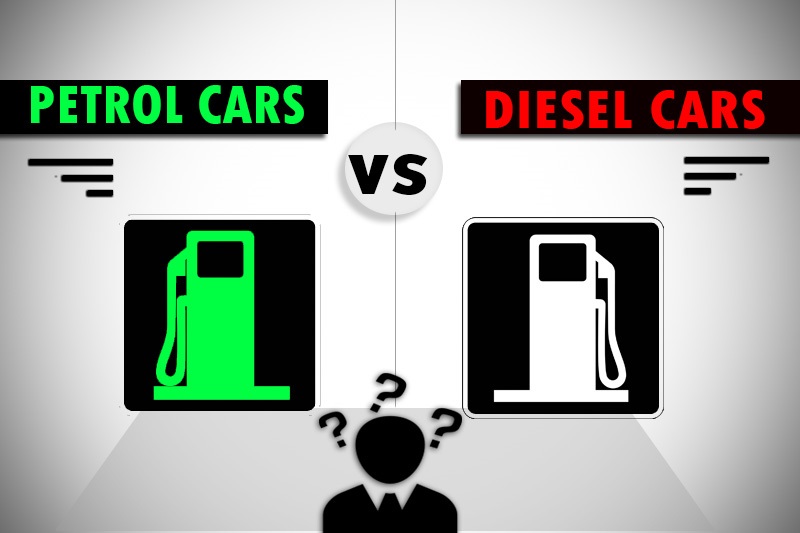In the past diesel was linked with trucks and other massive vehicles used for commercial purposes, and petrol was the fuel used for cars. Now, times have changed. Massive technological breakthroughs have reduced the issues of using diesel, and it is now on par with petrol in terms of usage. Because of the newfound understanding of its usage, every car is being released for petrol and diesel alternatives. While both the fuel types have their own advantages, it would depend on your proclivity for the preferred fuel type.
No matter which fuel type you choose, getting a vehicle insurance policy is necessary by the law. The motor car insurance policy will provide you with financial coverage if an unfortunate incident damages your car. The coverage you get will depend on the policy you choose. To enjoy the coverage, you must get your car insurance renewal done periodically.
While getting car insurance, you must be mindful about the different factors that affect the insurance policy. Some of them are:
- IDV:
Insured Declared Value (IDV) is the insured declared value of your car. The calculation of the IDV is done by applying the depreciation over the seller’s market price. The IDV is the maximum amount that you will get when filing a claim in the event your car gets damaged beyond repair or stolen.
- Make and model:
The make and model of a car is also a big factor in determining the insurance cost. For instance, a sports car will rake in a higher cost when compared with normal cars. A car with a high cubic capacity engine can also result in higher premiums. This is because higher cost equals higher IDV, which further translates to higher premiums.
- Fuel type:
Choosing fuel type affects your car in different ways like fuel-efficiency and expenses of maintaining the car. For instance, a diesel car’s value is more than a petrol car, which will result in a high IDV. Hence, ultimately increasing the insurance cost. This can result in the same model of cars raking in different insurance costs depending on the fuel type chosen.
Although fuel choice for a car has always been discussed, its relevance for your vehicle’s insurance policy is generally not considered. Let’s see how fuel type can affect the policy.
How does fuel type affect car insurance premiums?
The fuel type you choose for your car can also affect your insurance policy. Some of the ways they affect policy are listed below:
Repair cost:
The repair cost for a car that runs on diesel will be higher; hence the insurance company will charge high car insurance premiums. This will also be true for high-end cars and the ones that need expensive parts.
Price of the car:
Price of a car which has a diesel engine is normally greater than cars that run on petrol. Apart from this, the cost of the car will also have a direct impact on insurance. An expensive car would have a high premium.
As it is apparent now, fuel type can affect the insurance premiums. But how do you choose one? To make a decision between petrol and diesel for your car, you should consider the points listed below:
Fuel efficiency:
Mileage for a car operating on petrol is more for small journeys, but the diesel alternative is considered efficient for longer journeys. Hence, depending on the usage and your daily commute, you can select between the two.
Maintenance cost:
In the past, the maintenance cost of diesel-operated vehicles was quite high. But, recently, maintenance is not a big issue. In fact, the cost of maintaining both fuel types is almost the same.
Price of fuel in the location where you live:
The price of fuel is not a constant value throughout the country. It is different and differs in different states. The price of fuel also changes quite frequently. But diesel is a cheaper option than petrol. If you do not wish to burn too much money on fuel, then you should consider a diesel-run car.
Vehicle’s resale value:
If you do not stick to one car, you may be selling your cars as second-hand cars quite frequently. You should know that a diesel car can get more money than cars that use petrol.
Summing Up
Hence, it is notable that both the fuel types can affect the premium amount you pay on your insurance policy. However, you must consider the points above before making a decision. An informed decision in the past will only benefit you in the future. Deciding between the two will depend on your driving requirements. While diesel-run cars rake in a higher premium amount from a policy, they also provide excellent mileage when the vehicle is driven long-distance every day.

Hey, I am Raj. I am the owner and content publisher at Financenize. I have completed my education till intermediate school and after that turn to a full-time blogger and content writer. I usually share the quality information for the readers in Financenize, which helps the small business, individuals and entrepreneurs and the information I share makes their task more manageable. I am expert in analyzing the current situation and deliver a profitable period to the extent. You can find me on various social media handles online.








